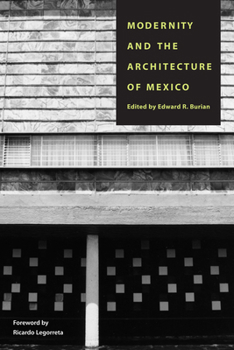Modernity and the Architecture of Mexico
Select Format
Select Condition 
Book Overview
Since the mid 1970s, there has been an extraordinary renewal of interest in early modern architecture, both as a way of gaining insight into contemporary architectural culture and as a reaction to neoconservative postmodernism. This book undertakes a critical reappraisal of the notion of modernity in Mexican architecture and its influence on a generation of Mexican architects whose works spanned the 1920s through the 1960s.
Nine essays by noted architects and architectural historians cover a range of topics from broad-based critical commentaries to discussions of individual architects and buildings. Among the latter are the architects Enrique del Moral, Juan O'Gorman, Carlos Obreg n Santacilia, Juan Segura, Mario Pani, and the campus and stadium of the Ciudad Universitaria in Mexico City.
Relatively little has been published in English regarding this era in Mexican architecture. Thus, Modernity and the Architecture of Mexico will play a groundbreaking role in making the underlying assumptions, ideological and political constructs, and specific architect's agendas known to a wide audience in the humanities. Likewise, it should inspire greater appreciation for this undervalued body of works as an important contribution to the modern movement.





